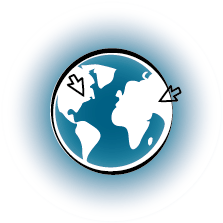ASHUKAN offers professional training on numerous topics related to the First Peoples living in Quebec, Ontario, and the Maritimes. The approach aims to differently grasp historical, political, and social issues in order to better understand Indigenous perspectives.

Accessible at all times, our virtual platform allows you to follow the training at your own pace and from wherever you wish

High-quality training designed by First Nations members and recognized by numerous professional organizations and educational institutions

Au cours des dernières années, les enjeux que soulèvent les Peuples autochtones ont ressurgi sur le devant de la scène. S’il est souvent difficile de s’en faire une idée concise, c’est parce qu’ils sont d’une étonnante complexité et que peu de ressources existent pour en rendre la compréhension plus accessible.
À travers 5 modules thématiques comprenant 18 capsules vidéos et tests de connaissances, totalisant près de 20 heures de formation, plongez dans l'univers des réalités autochtones et redécouvrez l’histoire récente afin d’expliquer certaines logiques qui prévalent lorsque nous souhaitons travailler avec les Premiers Peuples.
Introduction to Indigenous Peoples is a first glimpse into the Indigenous landscape. It aims to familiarize participants with Indigenous cultures and languages, and to give them a better understanding of the terminologies used to refer to Indigenous Peoples.
The course begins with a general presentation of the Indigenous nations and language families of Eastern Canada, and ends with a discussion, from an Indigenous perspective, of the most recommended terminology used in relation to the First Peoples of Canada. The course also explores the various cross-border challenges faced by First Peoples, and discusses some of the effects of sedentarization.
The Indigenous Perspectives on Canadian History course explores certain stages in Canadian history from an Indigenous perspective, exploring the evolving relationship between First Peoples and successive administrations of the Canadian government.
The course provides an opportunity to grasp the intimate connection between Canada’s current and past issues. It sheds light on how colonization has impacted Indigenous Peoples’ way of life in Canada.
The course offers a different understanding of history, providing a better grasp of current Indigenous life circumstances and concerns and the dynamics driving socio-political relationships.
Becoming a Player in Reconciliation with First Peoples questions the notion of reconciliation by exploring the depth of the historical and socio-political issues at stake. The aim is to better comprehend the obstacles that must be overcome if reconciliation is to be effective and to identify the individual and collective actions that will enable progress to be made on the road to reconciliation.
The course examines the elements of recognizing systemic racism and how it can be tackled. It highlights some systemic obstacles Indigenous Peoples face in Canada and presents current legislation and actions by the Governments and Indigenous organizations to overcome racism and discrimination against Indigenous Peoples.
Working Efficiently with Indigenous Communities: The Keys to Success introduces intercultural approaches and the various steps to improve professional relationships with First Peoples. It teaches about Indigenous cultures and values and provides communication tools adapted to the Indigenous context.
The course also provides an overview of Canada’s various Indigenous administrative and political organizations (band councils, tribal councils, Assembly of First Nations, Native Friendship Centres, etc.).
Lastly, the course examines state government bodies mandated to deal with Indigenous affairs.
Education examines the history of the Canadian school system as it relates to Indigenous Peoples and the inadequacy of its pedagogical approaches. It covers current challenges Indigenous people face in schools and universities, as well as new directions and recommendations.
First Peoples and Territory examines the long-standing relationship between First Peoples and their territories and their fundamental right to the land. It explores Canada’s land claims process and the Canadian legal system’s treatment of Indigenous rights.
Finally, Mythologies invites participants to discover the creation myths of Algonquian cultures, such as Mesh and Tshakapesh.
In embracing the Bear and its symbolism, the Ashukan Institute aims to:
Assert our pride in our identity and our mission: to promote the richness of our cultures, pass on our history from an Indigenous perspective, and raise awareness of the realities and issues affecting Indigenous peoples, in order to contribute to building bridges between nations.
Celebrating our kinship and expressing our solidarity with all Indigenous entrepreneurs who proudly embrace their roots while contributing to the economic development of First Nations.
For more information: https://id1n.org/en/